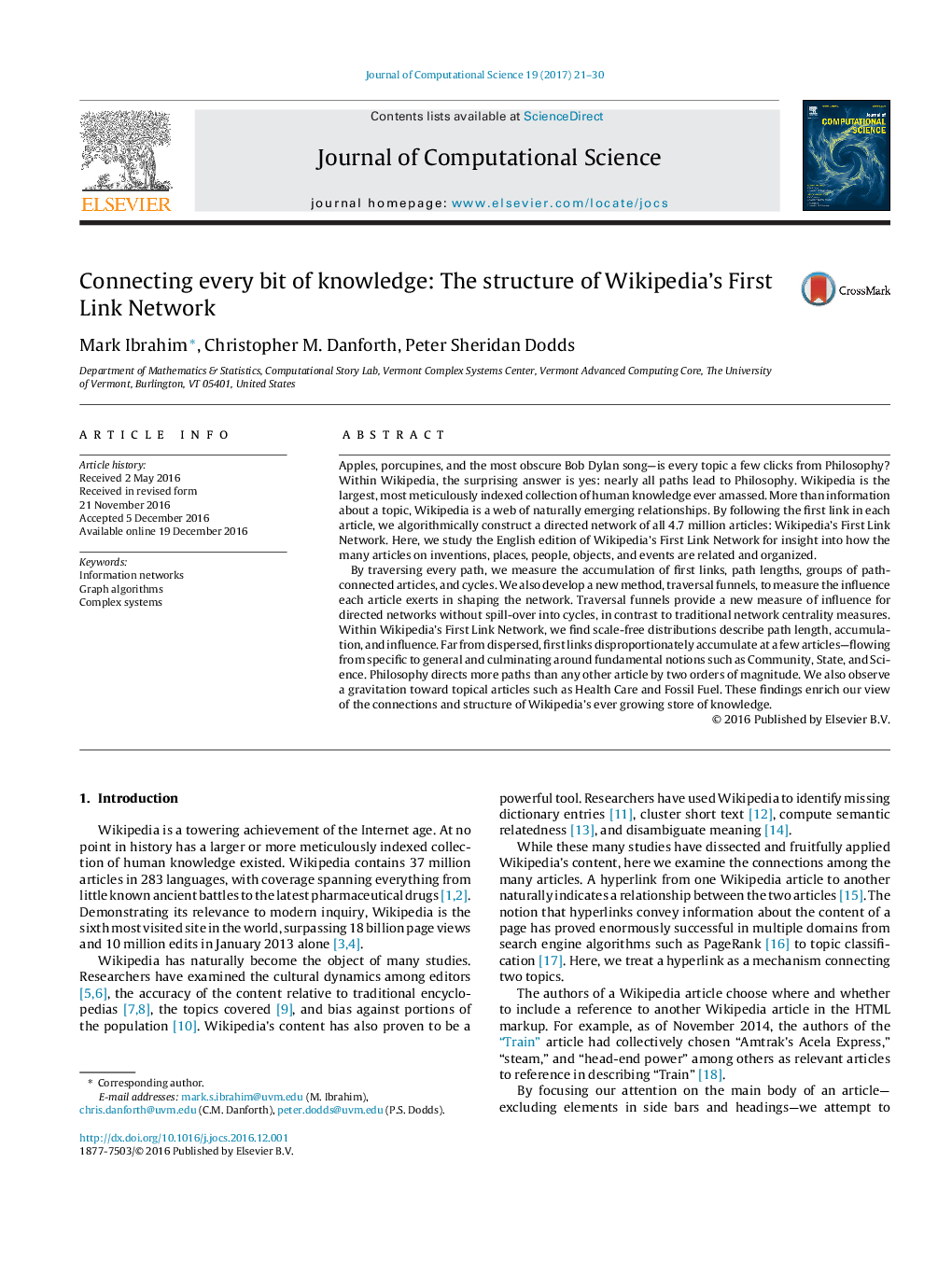| Article ID | Journal | Published Year | Pages | File Type |
|---|---|---|---|---|
| 4951064 | Journal of Computational Science | 2017 | 10 Pages |
Abstract
By traversing every path, we measure the accumulation of first links, path lengths, groups of path-connected articles, and cycles. We also develop a new method, traversal funnels, to measure the influence each article exerts in shaping the network. Traversal funnels provide a new measure of influence for directed networks without spill-over into cycles, in contrast to traditional network centrality measures. Within Wikipedia's First Link Network, we find scale-free distributions describe path length, accumulation, and influence. Far from dispersed, first links disproportionately accumulate at a few articles-flowing from specific to general and culminating around fundamental notions such as Community, State, and Science. Philosophy directs more paths than any other article by two orders of magnitude. We also observe a gravitation toward topical articles such as Health Care and Fossil Fuel. These findings enrich our view of the connections and structure of Wikipedia's ever growing store of knowledge.
Related Topics
Physical Sciences and Engineering
Computer Science
Computational Theory and Mathematics
Authors
Mark Ibrahim, Christopher M. Danforth, Peter Sheridan Dodds,
